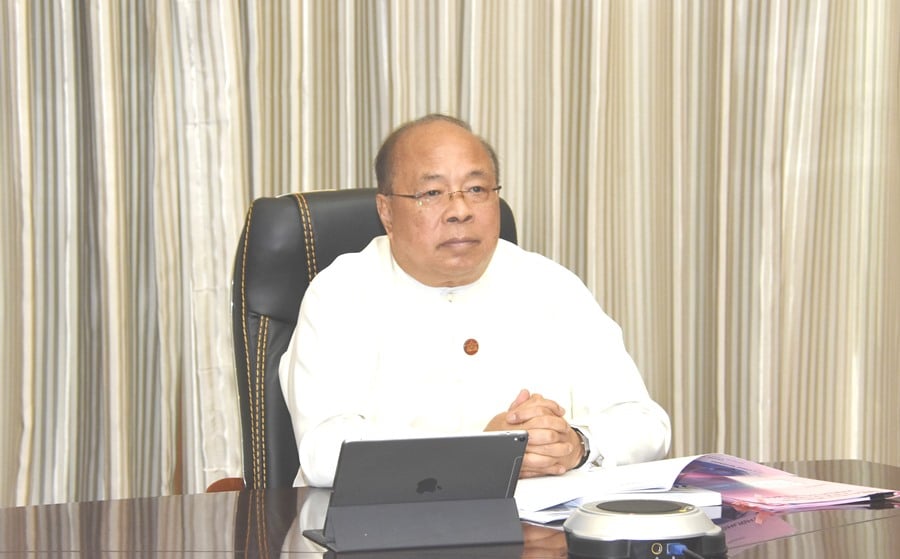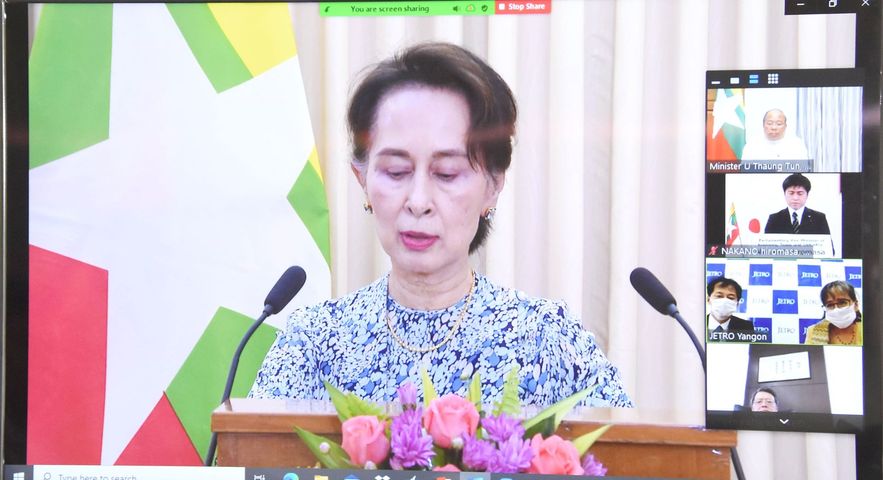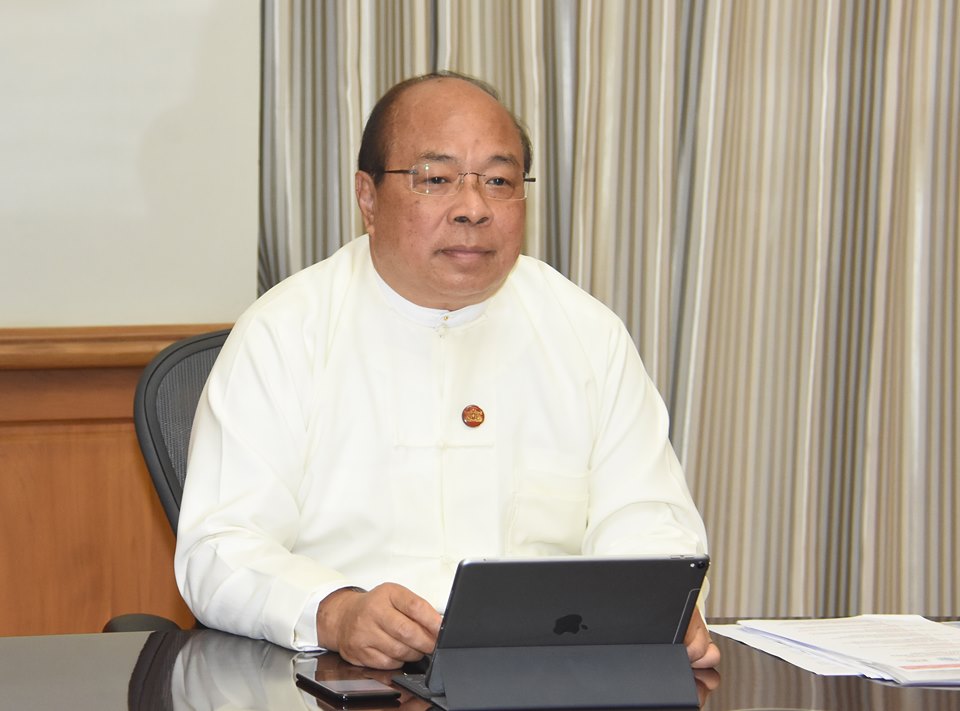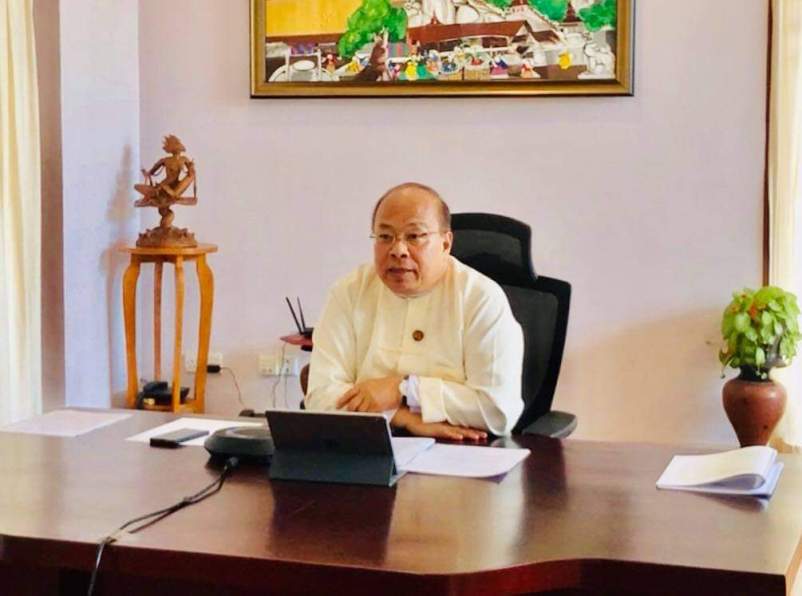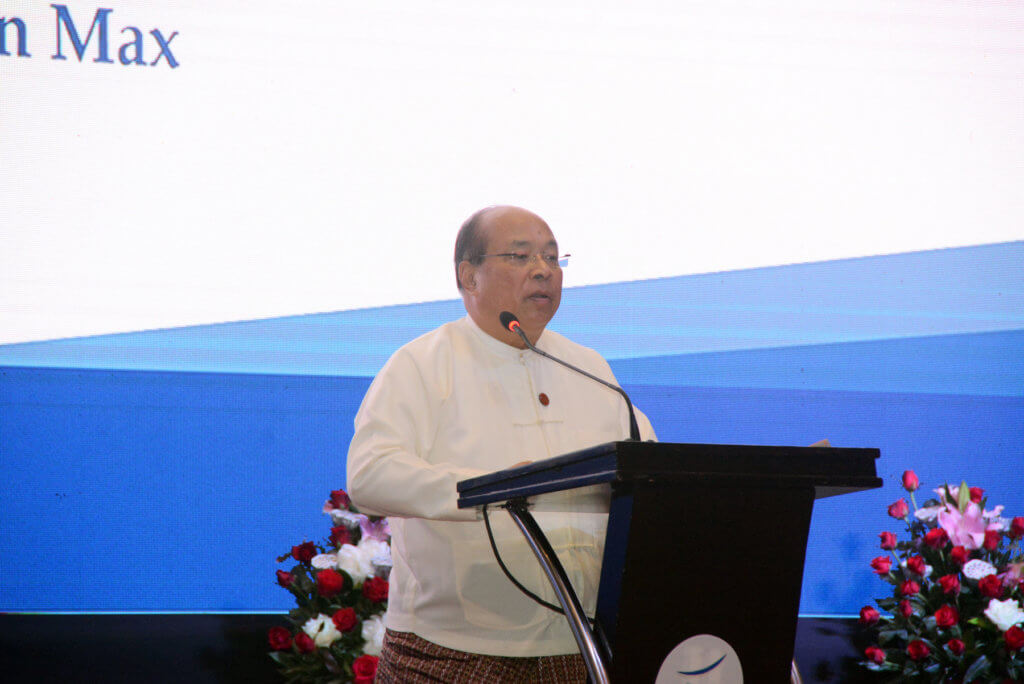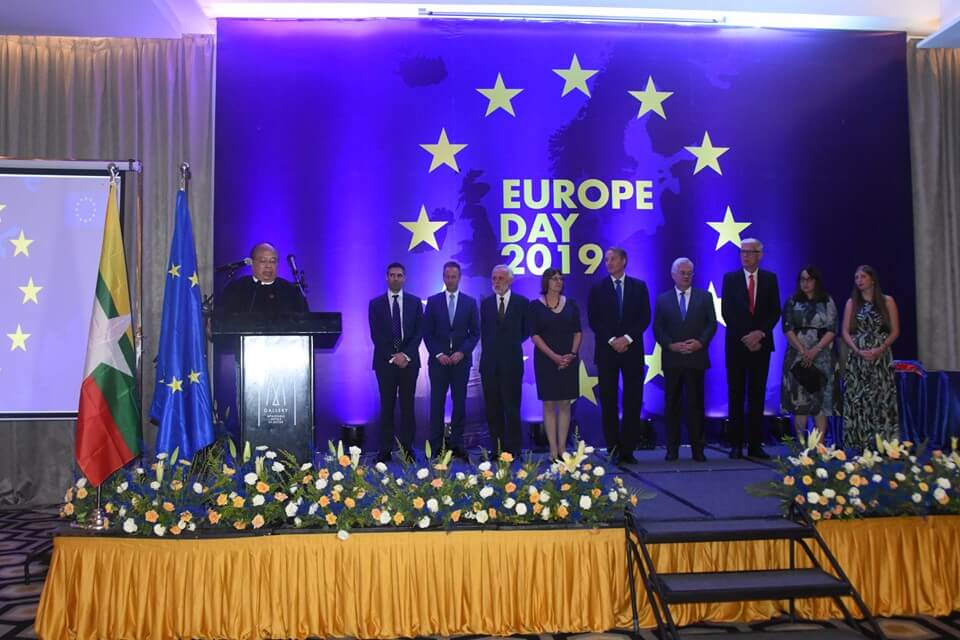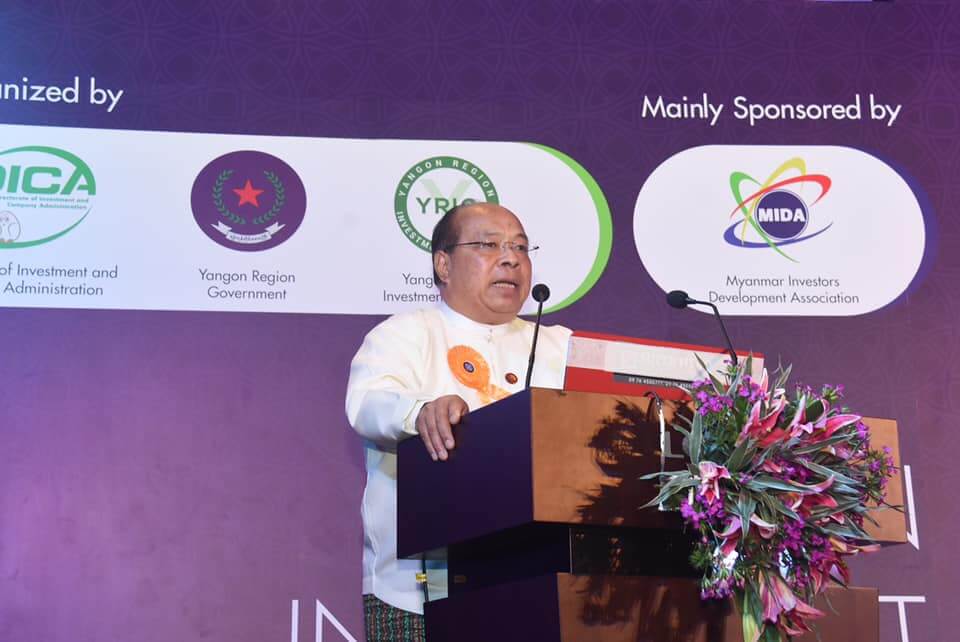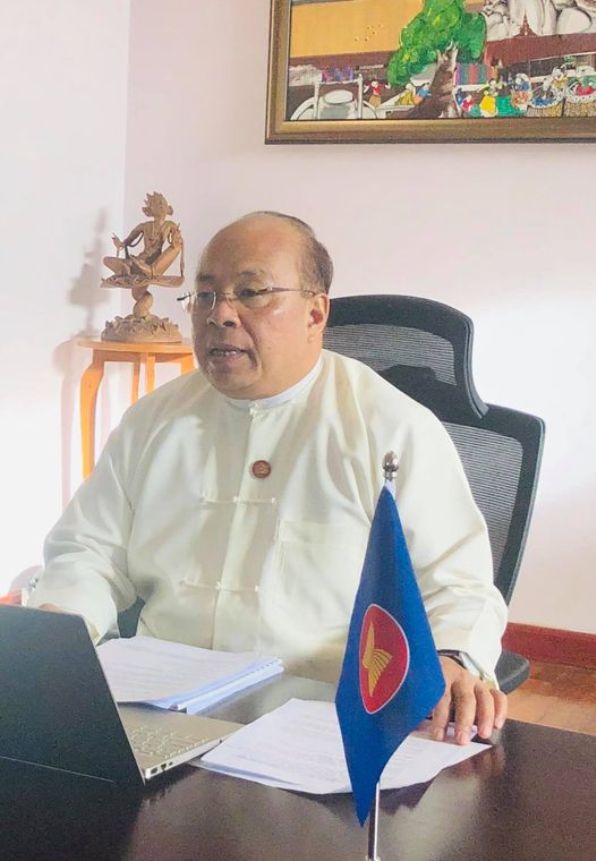

H.E. U Thaung Tun
Union Minister for Investment and Foreign Economic Relations
Distinguished Participants, Ladies and Gentlemen:
Good morning to you all and mingalaba from Myanmar.
Let me first say that I am delighted to be here with you to deliver this morning’s Economics Pillar Keynote Address – part of the University of New South Wales virtual ASEAN Conference 2020.
As I understand to be the tradition in your country, I would like to show my respects and acknowledge the Traditional Custodians of the Land, of Elders past and present on which this meeting takes place.
Note UNSW’s Reputation
The University of New South Wales’ reputation transcends Australia’s borders. Your institution is well known in Myanmar as a centre for scientific and technological excellence, for helping make the world a better place through ground-breaking research, and for preparing the next generation of game-changers in whichever field they may wish to pursue.
I must also state how pleased I am to see so many young Myanmar scholars attending UNSW. To those scholars, you represent the best of Myanmar. You truly do. And, when you return home, you will receive a warm welcome and find a nation that embraces your newfound skills – skills which will surely be in high demand, in both the public and private sectors.
Let me also take a brief moment to express, on behalf of Her Excellency State Counsellor Daw Aung San Suu Kyi and on behalf of the people of Myanmar– our sincere thanks to the people of Australia for your long-standing commitment to the expansion of peace, democracy and prosperity in Myanmar – be it through, increased trade and investment, through government-to-government ties, or expanding people-to-people connections.
Establish Historical Myanmar-Australia Connection & Hinge Point
Ladies and Gentlemen:
Myanmar-Australia relations go back a long way. The bonds between our countries have grown stronger since the Second World War. Historians write of a ‘hinge point’ in Myanmar-Australia relations when, 79 years ago, the Imperial Japanese Army began aerial bombardment of Yangon, crossing from Thailand into Myanmar shortly thereafter. At the same time, further south, the Japanese were launching similar attacks on the port of Darwin in Australia.
As the Japanese advanced into the heartland, our capital was exposed. As it so happened, two Divisions of Australian Imperial Force (AIF), --diggers as you may call them; “the "Desert Rats" as they have since become known – had set sail east following successful operations in the North African and Mid-East theatres.
Prime Minister Churchill demanded the AIF be rerouted to reinforce Yangon’s defences. His Australian counterpart Prime Minister CURTIN opposed it in the belief that these crack troops were required on home soil to repel an imminent attack. After some delay, Australian forces did arrive in Yangon, but it was by then too late. The Japanese had pushed forward, capturing one town after another – and with that, a nation’s fate was sealed.
One can only guess at what Myanmar might have become had those Australian forces arrived in Myanmar but a few days earlier. An occupation may have been repelled resulting in an altogether different future for the people of Myanmar.
This is what I mean by the term ‘hinge point’, and I return to this concept later in my remarks.
Ladies and Gentlemen:
Let me thank both students and faculty for your very kind invitation to share a few insights as to where we find ourselves at this present place and time, and as to the challenges both our countries are now facing and can expect to face over the years and decades ahead.
Challenges such as addressing the devastating impacts of climate change, repairing a fragile multilateral, rules-based order, and addressing widening inequality within countries, all in the context of an ongoing battle against COVID-19.
I must admit, I do not have all the answers. Indeed, my generation is now reliant on your generation to solve many, if not most of these challenges!
Nevertheless, I’ve been invited today to speak on the topic: “Inspiring the Present, Envisioning the Future”.
As I reflected upon what I might say, I was faced with what you might call a crisis of conscience. For let us be frank, when we cast our eyes across today’s headlines, inspiration is in short supply.
We read global growth is forecast at negative -4.4 per cent. We witness a declining commitment to pluralism and tolerance, and the unravelling of institutions that have come to define the post-war world order. We are reminded that democracy is under assault.
We also read of one million lives lost tragically to COVID-19, and millions being cast back into poverty. This is the worst setback for poverty reduction on record, and it’s not over yet.
Closer to home, within the Asia-Pacific, the World Bank predicts that COVID-19 will cause as many as 38 million people to either remain in or be pushed back into poverty – the first increase in regional poverty in two decades.
One may rightly ask: Minister!? From where might we draw inspiration given the sorry state of our world today?”
Inspiring the Future
Ladies and Gentlemen:
Might there be grounds for optimism?
I do believe there is.
Be it by coincidence or by design, today we celebrate the International Day for the Eradication of Poverty. And it is on such an occasion that I cast my mind back to how far we in Myanmar have come from the dark days of dictatorship – I believe we now stand on the cusp of important change and transformation, providing room for cautious optimism.
GDP per capita has risen more than eleven-fold between 1990 and 2018.
Poverty has been halved within the span of a single generation. For most of our people, malaria and illiteracy are vestiges of the past.
While global growth has indeed slowed, Myanmar remains amongst a small handful of nations who will post positive growth this year-- growth that we are now converting into tangible improvements in the lives of our people.
Oxfam this month reported that Myanmar has used the COVID-19 crisis as an impetus to expand social protection coverage to 21 million people, an increase of some 8,684%.
We have also used this occasion to re-affirm our commitment to addressing the scourge of child labour when we ratified the ILO Minimum Age Convention 138, prohibiting, amongst other things, hazardous activities for those under 18 years old.
Educational indicators have improved across the board. Indeed, I am sure many in the audience will agree that Myanmar’s younger generation has more opportunities in regard to higher education than the generation before it.
We have also successfully channelled this period of economic growth into a noticeable shift in our country’s economic makeup – triggering a transition from agriculture to industry. As a result, female participation in our country’s labour force has increased, with more women now working in more diverse sectors than ever before.
In 2015 we gathered, many for the first time, to cast a vote in free and fair elections. Next month, we shall do so again. I believe that in Myanmar today, despite challenges, the arc of progress continues to lean toward peace, justice and prosperity.
As they say, the mind is like a parachute – it won’t work if it’s not open! So, I do try to keep an open and indeed, a positive one!
But this bright future of ours is by no means guaranteed.
Myanmar’s Second Wave
Ladies and Gentlemen:
We are now in the midst of battle with a COVID-19 2nd wave. It offers us cold comfort to know that we are not alone as much of the world faces a similarly daunting challenge.
We offer our profound thanks to the men and women at the frontline, engaged in the daily battle against this deadly disease.
They have sacrificed more than what was expected of them. To borrow the words from the wartime speech made by British Prime Minister Churchill, “Never was so much owed by so many to so few”.
Envisioning the Future
But notwithstanding COVID’s carnage, I still have reason for cautious optimism.
In the year just passed, we were proud to have topped over US$5.68 billion in foreign investment approvals – laying the foundation for as many as 100,000 thousand new, jobs – jobs that will play a key role in catalysing our economic recovery over the months and years ahead.
Indeed, despite challenging global, regional and domestic headwinds, Myanmar has successfully attracted more than US$25 billion in FDI commitments over the past four years.
Guided by the principles set forth within the UN Global Compact, we are seeing an increasing number of our investors embracing the concept of voluntary corporate social responsibility and sustainable business practices. In this regard, we welcome Australian businesses, in particular those which sees CSR not as a source of charity, but rather, as creating shared value, promoting skills development and supporting of the UN Sustainable Development Goals.
Climate Change and Ecological Crises
Ladies and Gentlemen:
I believe that when we look back upon these times, we will see it as a “defining moment” or “hinge point” – the type which comes around just once or twice in a generation.
Another such hinge point will be seen in the looming ecological and climate crises.
Indeed, many have described COVID-19 as a mere test run for the battle against climate change, a battle that they believe will be won or lost here in Asia.
Sadly, Myanmar ranks amongst those countries most affected by weather-related events. Some have gone so far as to call climate change the biggest challenge facing Myanmar today.
Of course, the world has been well aware of the threat posed by climate change for decades now – dating back to the Rio Summit and the UN Framework Convention on Climate Change drafted in 1992 – a framework which was conceived before many in the audience were even born!
I do believe we must take full advantage of this defining moment in history – and advance the notion that systemic problems demand systemic solutions.
Recognising this challenge, Myanmar has recently joined hands with His Royal Highness the Prince of Wales in launching the Great Reset Initiative and with it, a vision of a greener, more equitable and more inclusive global post-pandemic recovery - a recovery that will accelerate our global transition toward sustainable markets while protecting livelihoods.
Multilateralism
Another hinge point can be seen in the current state of our multilateral global order.
Students of history will know that World War 1 and 2 did not occur in a vacuum – taking place within a context of centuries of violent extraction, colonisation and oppression. Indeed, we in Myanmar have had to deal with civil strife ethnic rivalry and conflicts whose roots clearly stem back to violent exploitative colonial practices.
What emerged from the ashes of conflict was a unipolar world order – and with it, the institutions that have delivered the greatest period of economic expansion and broad-based improvement to the human condition the world has ever known.
However that era of a unipolar world has come to an end – perhaps faster than many predicted.
For Myanmar, we must simultaneously address the challenge that comes with 21st-century nation-building within the context of the new multi-polar world we find ourselves. And to add to this challenge, Myanmar’s re-emergence comes at a time in which the world is facing rising protectionist sentiments, and a shift away from multilateralism in favour of bilateralism and in some cases even isolationism.
Regional Comprehensive Economic Partnership
I believe our shared prosperity and security can only truly be safeguarded within a functioning multilateral system. The imminent signing of the Regional Comprehensive Economic Partnership at the 4th Summit of RCEP Leaders next month will be, I hope, a testament to that.
So, let me take a moment to thank Australia for your proactive and highly constructive role in bringing the RCEP closer to reality.
Covering up to 30 per cent of global GDP, and as a complement the WTO, the RCEP’s core objective is of course is to establish a modern, comprehensive, high-quality and mutually beneficial economic framework that will facilitate the expansion of trade and investment throughout the world. And, when this landmark agreement is signed, will help broaden ASEAN's engagement with Australia, China, Japan, Korea and our friends across the pond in New Zealand.
Inequality
Ladies and Gentlemen:
This pandemic demonstrates clearly that the health of our domestic economy today is dependent on that of our region and the world. We are our brother’s keeper.
The IMF now forecasts Myanmar’s growth this year at 2%. While most forecasts suggest a rapid return to pre-crisis growth levels in 2021, we have miles to go before we sleep.
Of course, in monetary terms, the largest declines in growth will be witnessed in more developed countries, but it should come as no surprise that the greatest economic and social damage will be felt in developing countries. Myanmar is no exception.
COVID-19 has had a devasting impact. The pandemic has affected human health and reduced human capital and productivity, possibly for decades. We know that businesses and people are facing tremendous hardship.
But the impact of COVID-19 also goes beyond job losses and incomes. In a COVID-19 world, the most vulnerable have become even more vulnerable. We can sense that inequality is on the rise. We know that people are being pushed back into poverty.
We are doing all that we can – but in addressing these monumental challenges we need to work together.
Conclusion
Ladies and Gentlemen:
Never in our nation’s history have we confronted a development challenge as nefarious as COVID-19 whose social and economic impacts are being felt from the far reaches of Putao’s snow-capped peaks to Bondi’s sandy shores.
Reimagining a post-COVID-19 future for Myanmar will involve a range of reforms, big and small, in both practice and mindset, by a range of actors.
Only when the waves have receded will we be in a position to accurately assess the true extent of damage done.
And, I hope that whether it be in Australia, or in Myanmar, the next generation of scholars will be ready and willing to step up to the plate! We’ll needs all hands-on deck! We can do no less.
I wish you all good health, happiness and prosperity.
Thank you so much.



